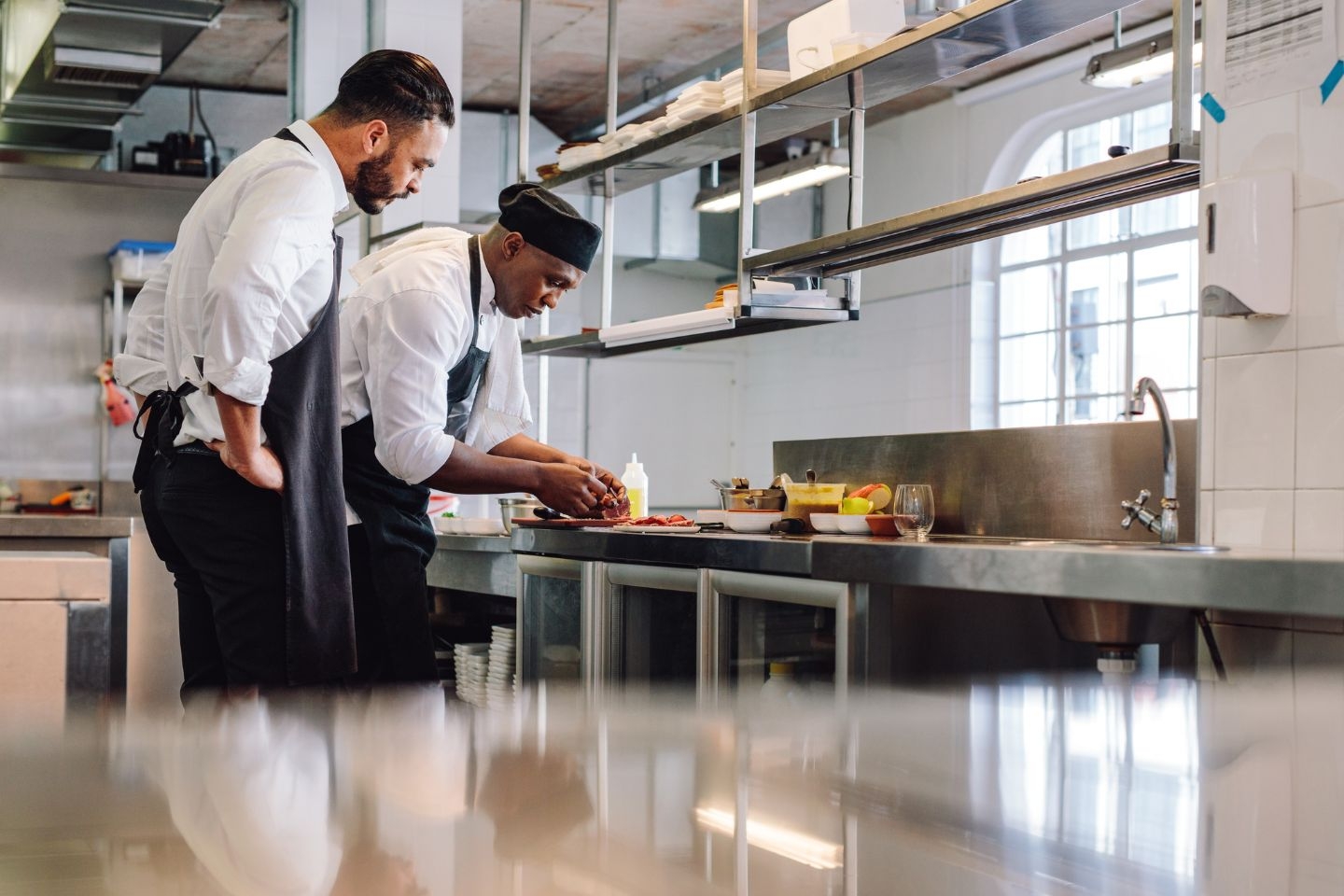Preparing for Your Cert 3 Commercial Cookery Assessment

The Certificate III in Commercial Cookery is a vital qualification for aspiring chefs and culinary professionals. It equips you with the skills and knowledge needed to excel in a commercial kitchen environment. If you're preparing for your Cert 3 Commercial Cookery assessment, it's essential to approach your preparation systematically to ensure success. Here’s a comprehensive guide to help you navigate through your assessment preparation with confidence.
1. Understand the Assessment Criteria
Before diving into study and practice, familiarize yourself with the assessment criteria. The Cert 3 Commercial Cookery assessment typically includes practical demonstrations, written tests, and possibly a portfolio of work. Understanding what is expected in each component will help you focus your preparation efforts.
- Practical Assessments: These require you to demonstrate your cooking skills, including preparation, cooking techniques, and presentation.
- Written Tests: These tests assess your theoretical knowledge about food safety, kitchen operations, and menu planning.
- Portfolio: A collection of your work, including recipes, menus, and reflections on your cooking experiences.
2. Master Key Cooking Techniques
A significant portion of your assessment will focus on practical cooking skills. Ensure you are proficient in fundamental cooking techniques, including:
- Knife Skills: Accurate chopping, slicing, and dicing are crucial.
- Cooking Methods: Familiarize yourself with grilling, roasting, sautéing, poaching, and baking.
- Plating and Presentation: Develop an eye for plating dishes attractively and efficiently.
Practice these techniques regularly to build confidence and speed.
3. Review Food Safety and Hygiene Practices
Food safety and hygiene are critical components of commercial cookery. Review and adhere to the following:
- Personal Hygiene: Understand the importance of cleanliness and personal protective equipment (PPE).
- Food Storage: Learn about proper storage temperatures, shelf life, and handling of ingredients.
- Cross-Contamination: Practice methods to avoid cross-contamination, such as separating raw and cooked foods.
Ensure you can demonstrate these practices effectively during your practical assessments.
4. Study Your Course Material
Go through your course notes, textbooks, and any additional resources provided by your training institution. Focus on:
- Menu Planning: Understand how to design menus that are balanced and suitable for different dining settings.
- Ingredient Knowledge: Learn about various ingredients, their uses, and how to substitute them if necessary.
- Nutritional Information: Be aware of dietary requirements and how to cater to them.
5. Practice Time Management
In a commercial kitchen, time management is crucial. Practice working efficiently under time constraints by:
- Simulating Assessment Conditions: Create practice scenarios that mimic the conditions of your assessment.
- Time Trials: Set timers while preparing and cooking to improve your speed and efficiency.
6. Seek Feedback and Support
Engage with instructors, peers, and industry professionals to get feedback on your skills and knowledge. Attend study groups or workshops if available. Constructive feedback can help you identify areas for improvement.
7. Prepare Your Assessment Portfolio
If your assessment includes a portfolio, ensure it is well-organized and comprehensive. Include:
- Recipes: Detailed recipes that showcase your culinary skills.
- Photos: High-quality images of your dishes.
- Reflections: Personal reflections on your cooking experiences and learning outcomes.
8. Stay Calm and Confident
Assessment day can be nerve-wracking, but maintaining a calm and confident demeanor will help you perform your best. Take deep breaths, follow your preparation plan, and trust in your training and practice.
9. Review Common Assessment Questions
Prepare for common written test questions related to commercial cookery, such as:
- How to handle specific ingredients or allergens.
- Best practices for maintaining kitchen equipment.
- Understanding various cooking methods and their applications.
10. Keep Up with Industry Trends
Stay updated with the latest trends in the culinary world. Knowledge of contemporary cooking styles, techniques, and industry standards can give you an edge in both practical and theoretical assessments.
Conclusion
Preparing for your Cert 3 Commercial Cookery assessment requires a blend of practical skills, theoretical knowledge, and effective time management. By understanding the assessment criteria, mastering key techniques, and staying organized, you can approach your assessment with confidence. Remember to seek feedback, practice diligently, and stay informed about industry trends. With thorough preparation, you'll be well-equipped to achieve success in your Cert 3 Commercial Cookery assessment.
- Industry
- Art
- Causes
- Crafts
- Dance
- Drinks
- Film
- Fitness
- Food
- Spiele
- Gardening
- Health
- Home
- Literature
- Music
- Networking
- Other
- Party
- Religion
- Shopping
- Sports
- Theater
- Wellness
- News


